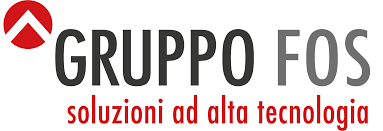INSTINCT - Sustainable management of key insects for South Tyrolean agriculture with intelligent sensor systems and low-impact intervention techniques

Funded by: FESR-EFRE Cohesion Italy 21-27 Alto Adige Südtirol, Co-funded by the European Union
Project duration: 01.2024 – 12.2026
Budget: € 928.688,32
Aim of project:
One of the research objectives of Laimburg Research Centre is the sustainable control of harmful insects in agriculture and the identification of methods to reduce the use of synthetic insecticides, limiting their use to only when absolutely necessary with the aim of delivering positive impacts on local populations, the environment and the economy.
The goal of the INSTINCT Project is to understand the proliferation and population dynamics of harmful insects by developing new, specially-constructed intelligent traps. The traps facilitate the study of the life cycles of pests and enable the testing of their presence and spread in the field in real time as well as making it possible to see how they interact with their surroundings, including through the integration of meteorological data. This information will be useful for planning strategies to curtail the spread of harmful insects and using them when needed.
Specifically, the project is focusing on the apple tree pest, Cydia pomonella, and the spotted wing drosophila, Drosophila suzukii, an exotic insect that also infests Schiava grapes and cherries. Every year these insects cause damage in the orchards of South Tyrol, resulting in economic losses.
Approach
The traps will catch the insects with the help of attractants developed as part of another project by Laimburg Research Centre and the Free University of Bozen/Bolzano (DROMYTAL project). The insects will be lured into the traps and detected there by special sensors. During the project, artificial intelligence will be trained to identify the target insects and thus record the frequency of successful captures. The development of an algorithm, the organisation of the data in a platform and the development of a specific application will make it possible to track the phenology of the phytophages remotely. At the same time as the insects are captured, environmental sensors will record some meteorological data such as UV radiation, humidity and air temperature. This will make it possible to better interpret the catch data and then develop phenological development models in order to determine the optimal intervention time for the containment measures. Additionally, the possibility will also be investigated of using hyperspectral imaging analyses to determine the fruits attacked by the insect pest D. suzukii by means of specific frequencies and to identify a more precise and timely monitoring of the start of infestation.
Expected Outcomes:
Development of a new digital and sustainable pest control system:
- Use of new sensors and attractants provided by earlier research work in order to create automatic monitoring systems for two harmful insects in South Tyrolean agriculture: Drosophila suzukii and Cydia pomonella.
- Real-time monitoring of the appearance of these pests in orchards, in order to determine the most favourable time for control measures and thus to reduce the use of synthetic insecticides.
- To serve as the basis for a future control strategy by integrating different technologies (such as specific sensors, artificial intelligence, IoT, simulations etc.) in a single pest control system, which in future can be extended to other pests.
Lead Partner – Versuchszentrum Laimburg:

Coordinator:
Silvia Schmidt, Head of the Biological Plant Protection Methods Working Group at Laimburg Research Centre, Silvia.schmidt@laimburg.it
Partner:


